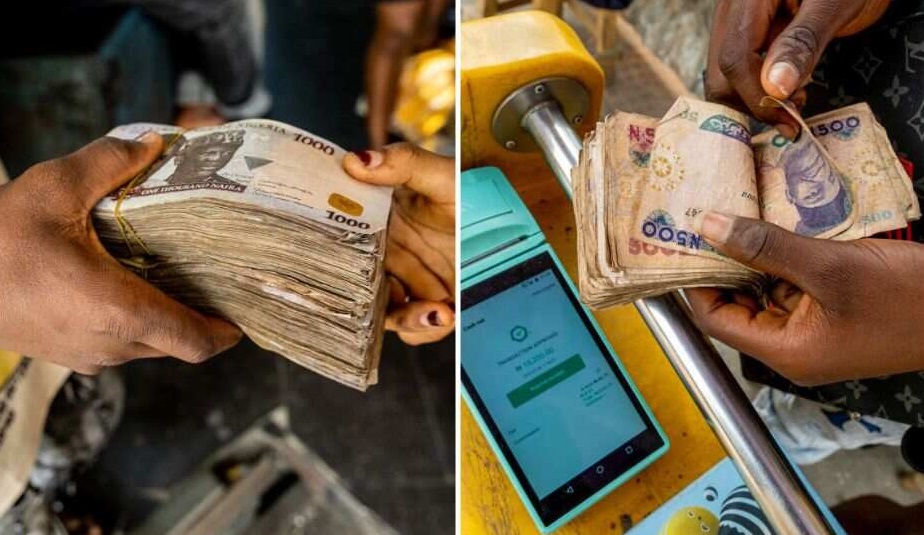As 2024 draws to a close, many Nigerians in Lagos are grappling with severe cash shortages, with Automated Teller Machines (ATMs) across the metropolis running dry.
Inside bank branches, the situation is equally grim, with customers being turned away due to a lack of cash or, in rare cases, limited to withdrawals of ₦10,000 or ₦20,000.
Despite a directive from the Central Bank of Nigeria (CBN) warning banks against failing to dispense cash via ATMs, compliance remains elusive.
The CBN had earlier threatened sanctions for non-compliant banks but has yet to take visible action, further exacerbating public frustration.
Residents have voiced their frustrations, as the scarcity disrupts end-of-year celebrations and essential transactions.
“It’s been frustrating. I’ve gone to three different banks today, and none of them has cash to give. How are we supposed to celebrate the season like this?” lamented Bright Joseph, a Lagos resident.
For daily needs like transportation, feeding, and market purchases, Nigerians are now reliant on Point of Sales (PoS) operators. However, these operators have seized the opportunity to impose exorbitant fees.
In some areas, withdrawing ₦5,000 now attracts charges as high as ₦500, compared to the ₦100-₦200 that was standard just months ago. Larger withdrawals face even steeper fees, leaving customers with limited options.
Benjamin Idowu, a civil servant from the Ogba area, shared his ordeal: “I had to withdraw ₦10,000 yesterday, and the PoS operator charged me ₦1,000. It’s unfair, but what can I do? I needed the cash.”
A tier-2 bank official, speaking anonymously, attributed the crisis to a combination of limited cash releases from the CBN and reduced customer deposits. “In a situation where you are not getting enough cash from the CBN and customers are not depositing, how do we get cash to pay out? Banks don’t print money,” the official explained.
The situation has led to allegations of collusion between PoS operators and banks, but operators deny these claims. Olawale Michael, a PoS operator in Ikeja, clarified: “There is no truth to the allegations that PoS operators are colluding with banks. For months, I’ve been sourcing cash directly from market women and shop owners who receive cash daily. It’s a symbiotic relationship because we save them the stress of going to the bank to deposit.”
Another operator, Mrs. Nkechi, revealed that she now sources cash from a fueling station, paying extra fees to attendants. “People complain that PoS charges are high, but we are also paying to get the cash. If I could withdraw from banks, my charges would return to normal,” she said.
The CBN Governor, Yemi Cardoso, had earlier emphasized during the 297th Monetary Policy Committee meeting that deposit money banks must ensure sufficient cash availability. “We have set up a monitoring system, and any bank not adhering to this directive will face penalties,” Cardoso stated.
However, despite these assurances, there has been no report of sanctions against any banks, even as ATMs remain visibly empty. This has raised concerns about the effectiveness of the apex bank’s monitoring mechanisms.
As the cash scarcity persists, economic experts warn of potential inflationary effects and increased reliance on informal financial systems. “If this situation continues, it could erode public confidence in the banking system and hinder the CBN’s financial inclusion goals,” noted Dr. Amaka Obasi, an economist based in Lagos.
The coming weeks will be critical in determining whether the CBN will enforce its directives or if Nigerians will continue to bear the brunt of systemic inefficiencies in the financial sector.

 Latest4 days ago
Latest4 days ago
 Trends5 days ago
Trends5 days ago
 Business7 days ago
Business7 days ago
 Football7 days ago
Football7 days ago
 Health6 days ago
Health6 days ago
 Featured7 days ago
Featured7 days ago
 Football6 days ago
Football6 days ago
 Business7 days ago
Business7 days ago

